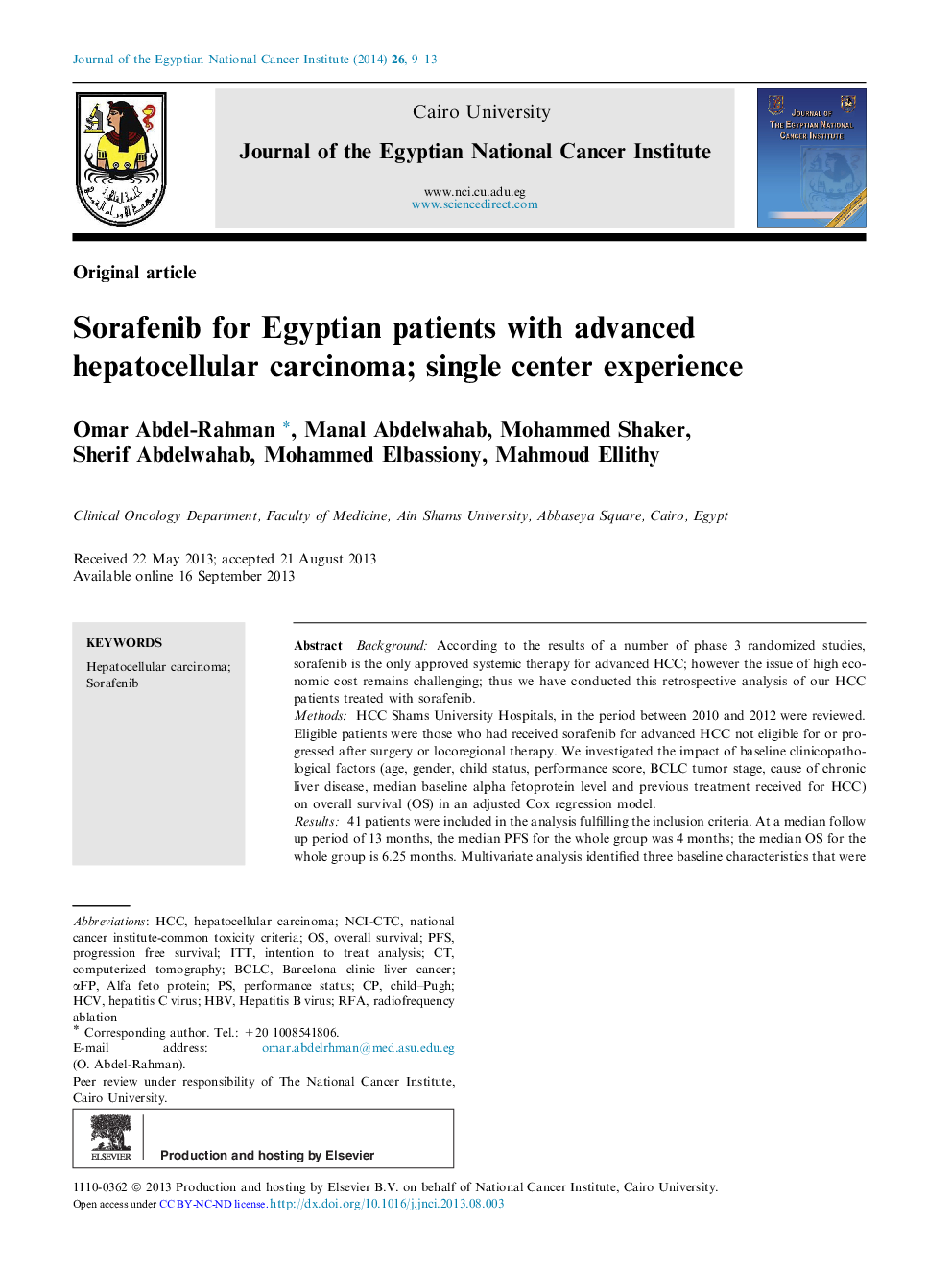| Article ID | Journal | Published Year | Pages | File Type |
|---|---|---|---|---|
| 3989058 | Journal of the Egyptian National Cancer Institute | 2014 | 5 Pages |
BackgroundAccording to the results of a number of phase 3 randomized studies, sorafenib is the only approved systemic therapy for advanced HCC; however the issue of high economic cost remains challenging; thus we have conducted this retrospective analysis of our HCC patients treated with sorafenib.MethodsHCC patients treated at Ain Shams University Hospitals, in the period between 2010 and 2012 were reviewed. Eligible patients were those who had received sorafenib for advanced HCC not eligible for or progressed after surgery or locoregional therapy. We investigated the impact of baseline clinicopathological factors (age, gender, child status, performance score, BCLC tumor stage, cause of chronic liver disease, median baseline alpha fetoprotein level and previous treatment received for HCC) on overall survival (OS) in an adjusted Cox regression model.Results41 patients were included in the analysis fulfilling the inclusion criteria. At a median follow up period of 13 months, the median PFS for the whole group was 4 months; the median OS for the whole group is 6.25 months. Multivariate analysis identified three baseline characteristics that were prognostic indicators for overall survival: ECOG performance status (median OS for ECOG 1 = 7.01 months and for ECOG 2 = 3.03 months), Child–Pugh status (median OS for child A = 12.04 months and for child B = 5.23 months), and median baseline levels of alpha-fetoprotein.ConclusionsIn limited resource countries like Egypt, we suggest that the use of sorafenib for the treatment of advanced HCC cases should be restricted to a highly selected subgroup of patients with good performance and child A.
